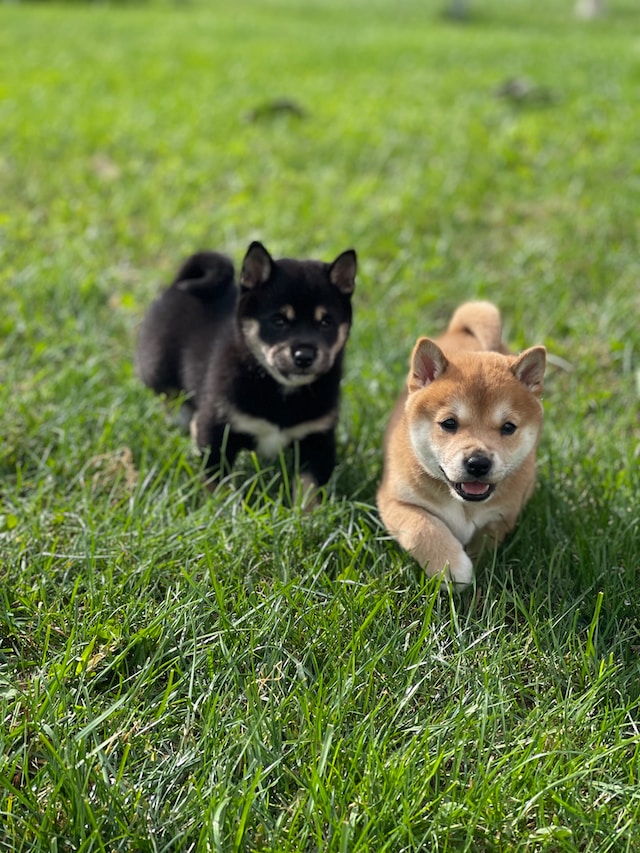
Without a doubt, the cutest animals in the world are puppies. Their unlimited and contagious enthusiasm is contagious, and they have those large, inquisitive eyes and floppy ears that make you want to stroke them all day. But, despite how adorable they are, they are also very impressionable.
What happens to a puppy in its first few weeks and months of life can have a significant impact on its temperament. Here in lies the importance of socializing. The goal of socialization is to help your puppy grow into a well-adjusted, self-assured, and sociable dog. It involves introducing your puppy to a range of people, animals, and experiences.
But it goes beyond just playing with other puppies. The science of puppy socialization and how it molds your dog’s behavior for life will be discussed in this article. Understanding the value of socialization is essential to raising a happy and healthy dog, regardless of your experience level as a puppy owner or experienced dog owner. So let’s get started!
The process of exposing your puppy to new situations, creatures, and experiences in a healthy and controlled way is known as puppy socialization. This aids in the development of puppies into sociable, self-assured canines. Starting socialization at a young age is optimum, between 3 and 14 weeks of age.
Puppies are most open to new experiences during this period, and they are more likely to develop good associations with them. Meeting new people, playing with other puppies, exploring new places, and getting a taste of various sounds, smells, and sensations are all examples of socialization.
There is the science underlying puppy socialization, so it’s not just a matter of common sense. According to studies, pups who receive the right socialization are more resilient, self-assured, and fearless than those who do not receive it. This is so that puppies, who may later find it difficult to handle stress, can build good associations with new experiences thanks to socialization. Puppy socialization also aids in the development of the social skills required for positive interactions with both people and other dogs. They may become more likable and easier to train as a result.
Why is socializing crucial for puppies?
First of all, it aids in averting behavioral issues in later life. Lack of socialization increases the likelihood of fearfulness, anxiety, and aggression in dogs. This may result in problems including separation anxiety, canine aggression toward other dogs, and even human hostility. Second, socialization aids puppies in acquiring the social abilities required for productive interactions with both people and other dogs.
Well-socialized dogs are more likely to be outgoing and secure with unfamiliar people and pets, which can make them simpler to train and more fun to be around. In addition, socialization can help puppies build resilience and coping mechanisms that will later help them handle novel and possibly unpleasant situations.
Although straightforward, socializing your dog does take some work and preparation. Your puppy must be positively and carefully introduced to various people, animals, and activities. The following advice can help you socialize your puppy:
- Start early: It’s crucial to begin socializing your puppy as soon as possible because the critical socialization phase for puppies is between 3 and 14 weeks old.
- Ask friends and family to come over to meet your puppy so that you can introduce it to new people. You can get them to interact with your puppy nicely by giving them treats and playing with them.
- Organize playdates with other puppies or enroll your puppy in a puppy socialization class to help it become accustomed to other dogs. Your puppy will learn how to interact with other canines in a healthy and controlled way as a result.
- Take your puppy on walks through different places, like parks, beaches, and busy streets, to help it get used to new environments. This will facilitate your puppy’s acclimatization to various sights, sounds, and odors.
- Expose your puppy to different things. Make sure your puppy is exposed to different things, like loud noises, strange objects, and different textures. This will support your puppy’s resilience and coping abilities as they develop.
Advantages of a socialized puppy
The advantages of socializing your puppy are numerous. A puppy with good social skills is more likely to
- Be assured and cordial with unfamiliar people and animals.
- Be more obedient and simpler to train.
- Possess fewer behavioral issues, such as aggression and separation anxiety.
- Become more robust and capable of handling novel, possibly stressful situations better.
- Overall better quality of life.
What happens to a puppy in its first few weeks and months of life can have a significant impact on its temperament. Lack of socialization increases the likelihood of fearfulness, anxiety, and aggression in puppies. This may result in issues including separation anxiety, canine aggression toward other dogs, and even human hostility. On the other side, puppies who have received a lot of socialization are more likely to be confident, sociable, and adjusted. Also, they are more entertaining to be around and simpler to teach.
